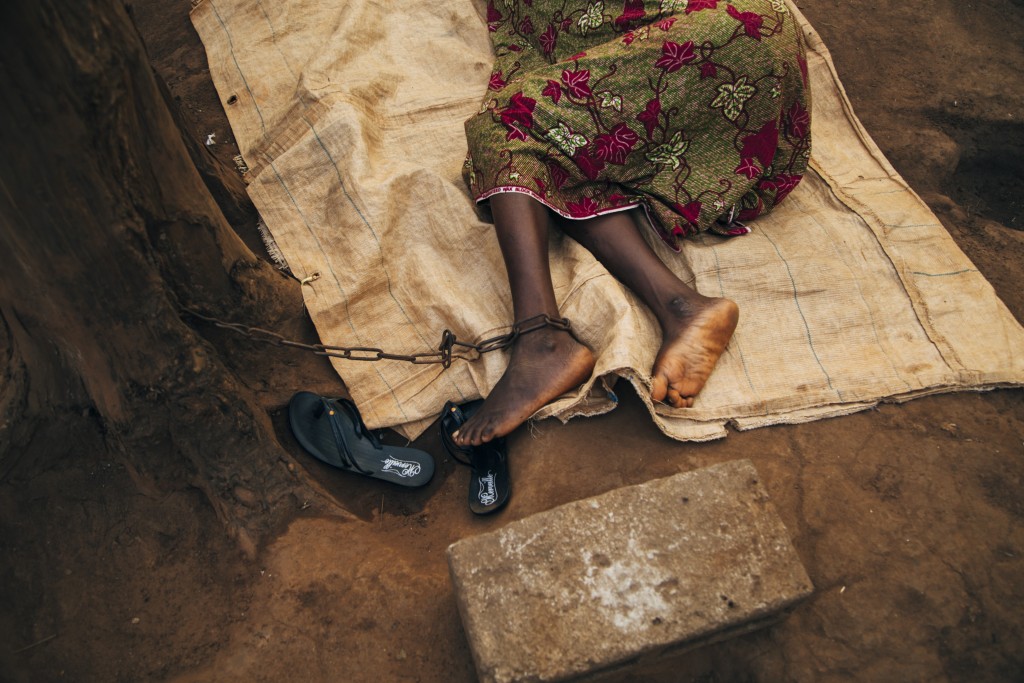Faith-based and traditional healing centers in Ghana are reported to be defying a ban on chaining up patients considered to be suffering mental health conditions.
According to Human Rights Watch, the ban on chaining patients at these healing centers was announced in 2017 but such a treatment continues.
On Wednesday the rights group said in a statement that from November 4 to 8, 2019, it “interviewed 25 people, including people with psychosocial disabilities, mental health professionals, staff at prayer camps and traditional healing centers, mental health advocates, religious leaders, and two senior government officials.”
Of the six prayer camps or traditional healing centers across Ghana’s Greater Accra, Eastern, and Central regions that Human Rights Watch visited, dozens of people were chained in two facilities.
Human Rights Watch said at both centers, men detained there called out to the Human Rights Watch researcher, begging to be released.
In one traditional healing center, Human Rights Watch said it “found 16 men in a dark, stifling room, all of them with short chains, no longer than half a meter, around their ankles.”
Calling for help
They called out: “We are suffering here. They are abusing our human rights. Please help us. Please help us.”
“People with psychosocial disabilities are still chained like animals,” said Shantha Rau Barriga, disability rights director at Human Rights Watch.
“If the government wants its ban on chaining to be more than empty words, it needs to ensure that these chains come off and develop local mental health services that respect the rights of people with mental health conditions.”
“The chaining of people with mental health conditions needs to stop – it needs to stop,” Ghana’s deputy health minister, Tina Mensah, is quoted by Human Rights Watch as saying regarding the report.
Similarly, in a meeting with Human Rights Watch, the gender, children and social protection minister, Cynthia Morrison, said: “I give you my commitment right now, and I’m sure we’ll bring an end to it.”
Mental health beliefs
According to Human Rights Watch it “has found, based on its research since 2011, that families often take people with real or perceived mental health conditions to faith-based or traditional healers because of widely held beliefs that such disabilities are caused by a curse or evil spirits, and because their communities have limited, if any, mental health services.
In some cases, the family member may have been using drugs such as marijuana; in others, they were outcasts because of so-called deviant behavior.
“We need to talk to the families and make sure that they are ready to receive them because if the family refuses to receive them, where do they go?” Morrison said of the families of people in the spiritual or traditional healing centers.
Deputy Minister Mensah said: “You can see that there have been improvements since the last time you were here. That means the people are taking up the challenge and improving some of the conditions.
But we need to still do more. We have to sensitize the people, educate them on the rights of every individual. They cannot chain people in this way.”
In February 2019, the World Health Organization initiated, with the support of the UK’s development agency, its Quality Rights initiative in Ghana, an e-learning program aimed at training at least 5,000 people on ways to improve the quality of mental health services and ensure respect for human rights, including through obtaining informed consent from the person involved.
Source: Africafeeds.com



